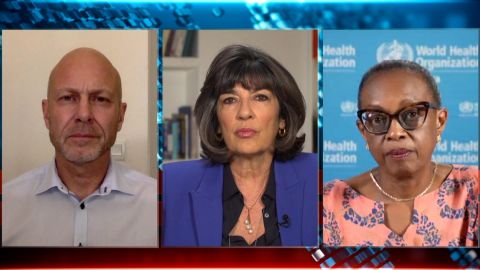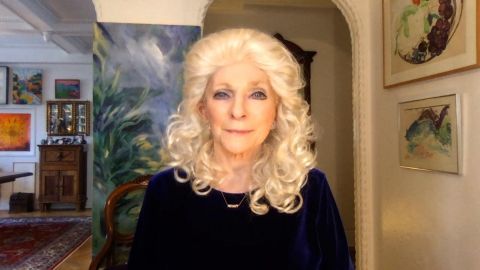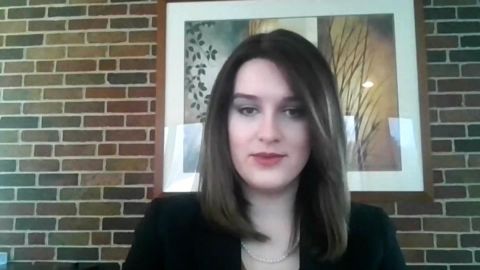Read Transcript EXPAND
CHRISTIANE AMANPOUR: What made you want to do this and reprise where you took off?
JUDY COLLINS, MUSICIAN: Well, I, first of all, want to thank you for all the work that you do, and how inspiring you always are. And I have been inspired by you and by the times, of course, and what’s going on. But I’m curious. I was born with curiosity and also optimism, both of which I think are necessary in these days, but they have always driven me. And I have always been a performer. I have always been singing, performing. And in the pandemic, I have actually done a lot of writing. I have a bunch of new things that are coming out soon. But being at Town Hall again, which was a theater, as you know, in New York which was founded by and opened by the suffragettes and at which I have sung many times, and at which my teacher Antonia Brico conducted her own orchestra of women in 1937, so it’s been a long time at Town Hall.
AMANPOUR: Well, it’s an amazing pedigree. I hadn’t actually realized — I’m glad you told us about the suffragettes and the female-led productions there. It’s great and clearly wonderful that you’re doing that. Can I just ask you? Because, I mean, am I right that you sound better than ever or certainly as good as ever? And I want to know what you put that down to, because not everybody at 81 has that clear pitch and those — that fantastic strength and purity of voice that you still have. And you even had an operation, I think, on a polyp or node on your vocal cords.
COLLINS: I did. Christiane, I did have a surgery for a hemangioma on my vocal cord, well, 44 years ago, it is now. I got lucky, because, in the beginning, when everybody else was running down to Max’s Kansas City and going to — we were all going to fund-raisers and marching, I also knew that I was losing my voice. This was in 1965. And losing your voice in those days was not so unpopular. A lot of people lost their voices and continued to sing. And a lot of people weren’t worried about it. But I was terrified of it, because, as a classically trained musician, and as the person whose heroes were people, a lot of people who were musicians who played until they fell over, conductors and violinist and pianists, and so I knew that I had to keep it, because I knew that that’s what I had going, was the voice.
About This Episode EXPAND
Angus Thomson and Dr. Matshidiso Moeti discuss the study on the AstraZeneca vaccine’s efficacy against the South Africa variant. Musician Judy Collins reflects on her career. Nikki King explains why she established an innovative new opioid addiction program that focuses on treatment and support rather than jail.
LEARN MORE


